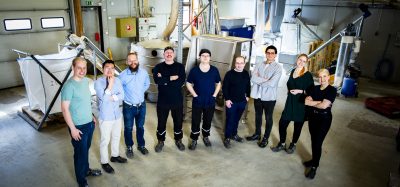EFSA identifies welfare issues with EU farmed rabbits
Posted: 9 January 2020 | Sam Mehmet (New Food) | No comments yet
Rabbits are said to be the second most farmed species in the EU, and although there are rules stipulating standards for the protection of farmed animals, including rabbits, there is no species-specific legislation protecting the welfare of farmed rabbits in the EU.


The welfare of adult rabbits kept in conventional cage systems is worse than that of those housed in other systems used in the EU, the European Food Safety Authority (EFSA) has concluded.
EFSA’s scientific opinion is reportedly based on an extensive survey of rabbit experts in the EU and the opinion relies on expert judgement because there is said to be little data available on the subject. In its recommendations, EFSA emphasised the need for data on welfare of farmed rabbits to be collected across the EU and also suggested that conventional cages should be enlarged and structurally enhanced to improve rabbit welfare.
The experts considered a number of welfare consequences related to health and behaviour, such as restricted movement, resting problems, prolonged thirst or hunger, thermal stress and skin disorders.
Most rabbit farming in the EU takes place in five Member States, according to EFSA: France, Hungary, Italy, Portugal and Spain, and farming practices were recorded as varying widely both between and within these countries.
To capture this variability, EFSA’s scientific opinion focused on six examples of housing systems: conventional cages, structurally enriched cages, elevated pens, floor pens, outdoor/partially outdoor systems and organic systems.
The main conclusions are that:
- The welfare of adult rabbits is lower in conventional cages than in the five other housing systems (with a certainty of 66-99 percent). The most significant welfare consequence is restricted movement
- The welfare of unweaned rabbits (kits) is lowest in outdoor systems and highest in elevated pens (certainty 66-99 percent). The highest welfare impact on kits raised in outdoor systems is thermal stress
- Organic systems are generally good
EFSA has published two other opinions on welfare issues associated with farming of rabbits: one looks at stunning methods and identifies welfare hazards and indicators of consciousness in the slaughter process. The other covers welfare issues associated with killing for reasons other than meat production (e.g. disease control).
Related topics
Health & Nutrition, Regulation & Legislation, Research & development









